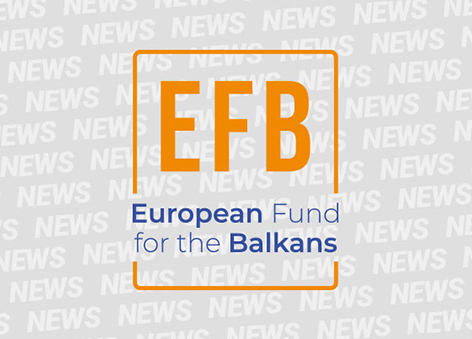
A roundtable was held in Washington D.C. on September 23, 2014, to discuss the recent report published by the European Fund for the Balkans (EFB) and the Balkans in Europe Policy Advisory Group (BiEPAG), titled “The Unfulfilled Promise: Completing the EU Enlargement to the Balkans”. EFB and BiEPAG shared the findings from the report with the German Marshall Fund of the United States (GMF) and GMF’s Balkan Trust for Democracy. The discussion was moderated by Ivan Vejvoda, senior vice president of programs at GMF. In her opening address, Hedvig Morvai, Executive director European Fund for the Balkans , emphasized that it is important to keep the Balkans committed to the EU agenda. Morvai explained that the report was an effort to begin thinking about unfinished endeavors in the Balkans and provide new solutions. Igor Bandović, Senior Programme Manager European Fund for the Balkans, concluded the opening address noting that the report innovatively incorporated perspectives from both the EU and Balkan countries. Florian Bieber, Director, Centre for Southeast European Studies, University of Graz and Coordinator of the Balkans in Europe Policy Advisory Group (BIEPAG), gave his view on why Croatia is the only Balkan aspirant that entered the EU. Bieber discussed the phenomenon of “enlargement fatigue”, in terms of lack of motivation for further expansion within the EU and possible obstacles to the European integration of the Balkans, such as the reforms in Bosnia and Herzegovina, tensions between Macedonia and Greece, and relations between Serbia and Kosovo. Marko Kmezi discussed the four scenarios presented in the report. Scenario 1 - Business as Usual envisages a slow approach to EU membership, Scenario 2 - Following Turkey’s Path: Alienation from the EU suggests a two-tier approach, in Scenario 3 - Abandoning Enlargement and New Unpredictability in the Western Balkans enlargement grinds to a standstill, and finally Scenario 4: The Balkans Big Bang envisages the offer of a single entry date for all countries of the Balkans. Kmezić concluded that commitment to integration is necessary, but that quick membership in the EU is unlikely. Vedran Džihić, Professor University of Vienna, Austria, BIEPAG, expressed his belief that “Business as Usual“ will be the strategy for the next few years, that people will be saturated and that there will be a lack of support for integration, but he also keeps a positive attitude that these issues can be solved. The event provided an opportunity to discuss the perspectives of the Balkans’ EU integration in further detail. It was attended by about 70 members of the government, of the diplomatic, academic, NGO, and think-tank communities, with Voice of America’s Macedonian service recording the event for all of the Balkans services . The event was also live-tweeted with the hashtag #GMFBalkans and promoted on the BTD Facebook page.






